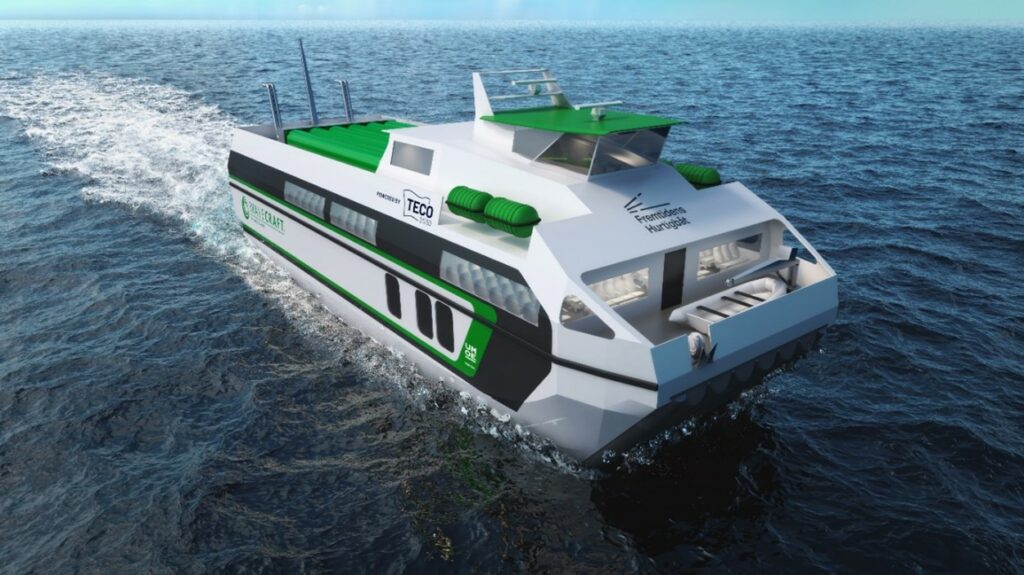TECO 2030 and Umoe Mandal have officially submitted the documentation package for an approval in principle application of the world’s first fuel cell high-speed vessel design to the Norwegian Maritime Authority.
The primary goal of the fuel cell high-speed vessel design is to revolutionize maritime transportation by offering a zero-emission alternative to conventional fossil fuel-powered ships. By harnessing the power of hydrogen fuel cells, the vessel aims to set a new standard for sustainability in the maritime industry, reducing harmful emissions and minimizing its environmental footprint.
At the heart of the fuel cell high-speed vessel is a state-of-the-art multimegawatt fuel cell system, developed by TECO 2030, which serves as the primary propulsion source. This innovative technology leverages hydrogen as a clean and efficient energy carrier, generating electricity through a chemical reaction with oxygen from the air, with water vapor as the only byproduct. Combined with Umoe Mandal’s proven Crew Transfer Vessel (CTV) Surface Effect Ship (SES) technology and air-cushion catamaran design, the vessel promises exceptional performance and environmental sustainability.
The introduction of the world’s first fuel cell high-speed vessel is poised to have a profound impact on the global maritime industry. By demonstrating the feasibility and effectiveness of hydrogen propulsion for high-speed passenger vessels, this groundbreaking initiative is expected to catalyze a broader shift towards sustainable fuels and zero-emission transportation solutions. Furthermore, the vessel’s design and operational capabilities could inspire other shipbuilders and operators to embrace hydrogen technology, accelerating the transition towards a greener and more sustainable maritime sector.
